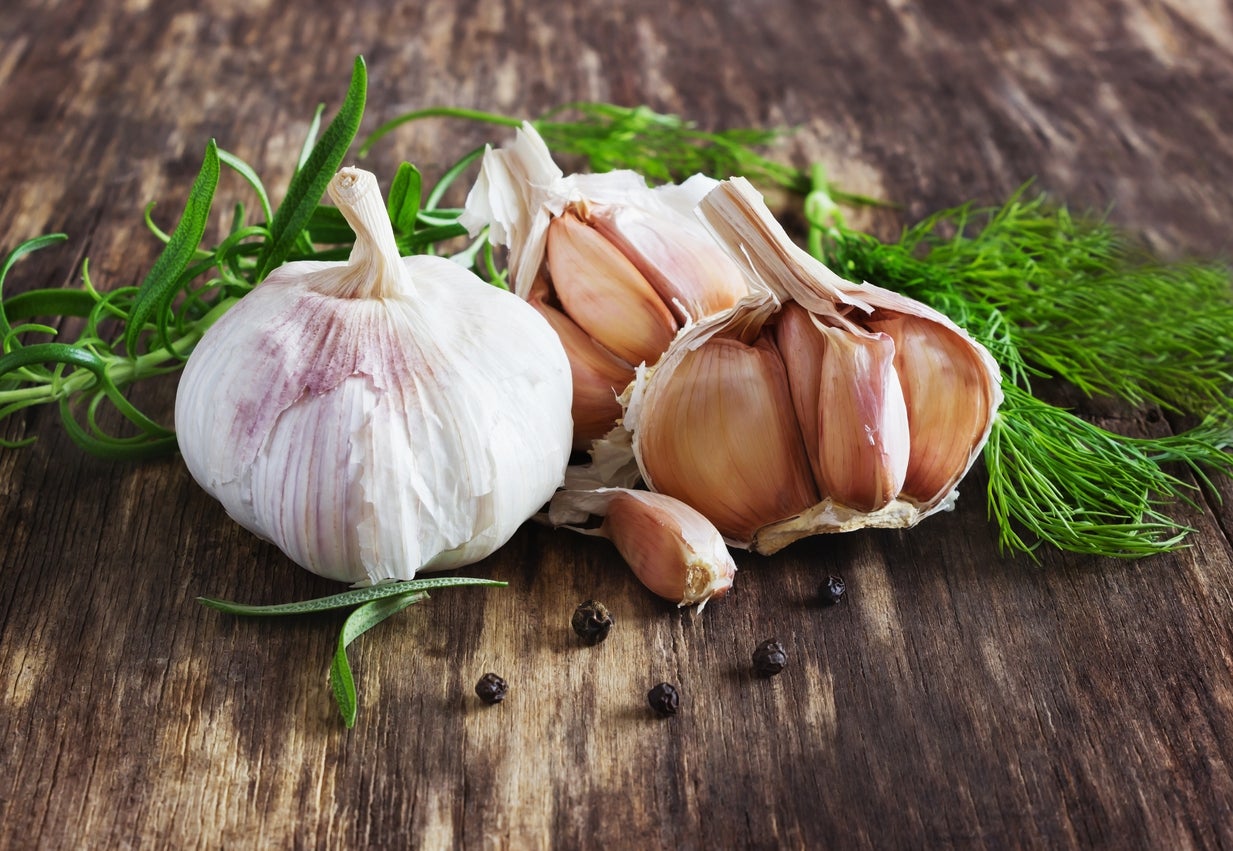Eating garlic can reduce risk of certain cancers, study finds
Researchers are still debating the most beneficial way to prepare garlic

Your support helps us to tell the story
From reproductive rights to climate change to Big Tech, The Independent is on the ground when the story is developing. Whether it's investigating the financials of Elon Musk's pro-Trump PAC or producing our latest documentary, 'The A Word', which shines a light on the American women fighting for reproductive rights, we know how important it is to parse out the facts from the messaging.
At such a critical moment in US history, we need reporters on the ground. Your donation allows us to keep sending journalists to speak to both sides of the story.
The Independent is trusted by Americans across the entire political spectrum. And unlike many other quality news outlets, we choose not to lock Americans out of our reporting and analysis with paywalls. We believe quality journalism should be available to everyone, paid for by those who can afford it.
Your support makes all the difference.Garlic has been highly regarded as a health-boosting ingredient for a very long time, used to treat human disease for thousands of years.
However, the way that garlic benefits the body has perplexed researchers for eons.
In a recent study published by scientists from the University of Nottingham, researchers concluded that garlic can in fact reduce the risk of developing certain kinds of cancers, cardiovascular disease and type 2 diabetes.
Furthermore, the way in which garlic is prepared can have a positive effect on the bulb’s ability to benefit your health.
However, scientists have been unable to determine which method of preparation is the most effective.
Garlic produces a variety of sulphur compounds when prepared, whether it’s chopped, fermented in alcohol or pressed for oil.
According to researchers, these sulphur compounds can affect “gaseous signalling molecules” such as nitric oxide and hydrogen sulphide that are naturally produced in the human body.
Altered levels of gaseous signalling molecules can be detected in people suffering from many diseases, as they can have a huge impact on cell communication and maintaining balance in the body.
“These molecules give the plants an ecological advantage when they’re growing out in the wild,” said Dr Peter Rose, a biochemist at the University of Nottingham and senior author of the study.
“As it happens, they’re also biologically active within mammalian cells and tissues, but we do not know how they are metabolised in humans.”
While the optimum technique for preparing garlic is still being debated, the researchers did agree that garlic is one of several plant species that has strong restorative abilities.
“There is a lot of possibility within this area for finding approaches that could reduce the risk of diseases and improve human health, but it all comes back to those fundamental questions of what actually happens to these compounds when we metabolise them,” Dr Rose said.
“There’s a whole spectrum of human work that still needs to be done to further explore some of these weird and wonderful sulphur compounds that we find within our diets.”
The review was published in the journal Trends in Pharmacological Sciences.
Join our commenting forum
Join thought-provoking conversations, follow other Independent readers and see their replies
Comments